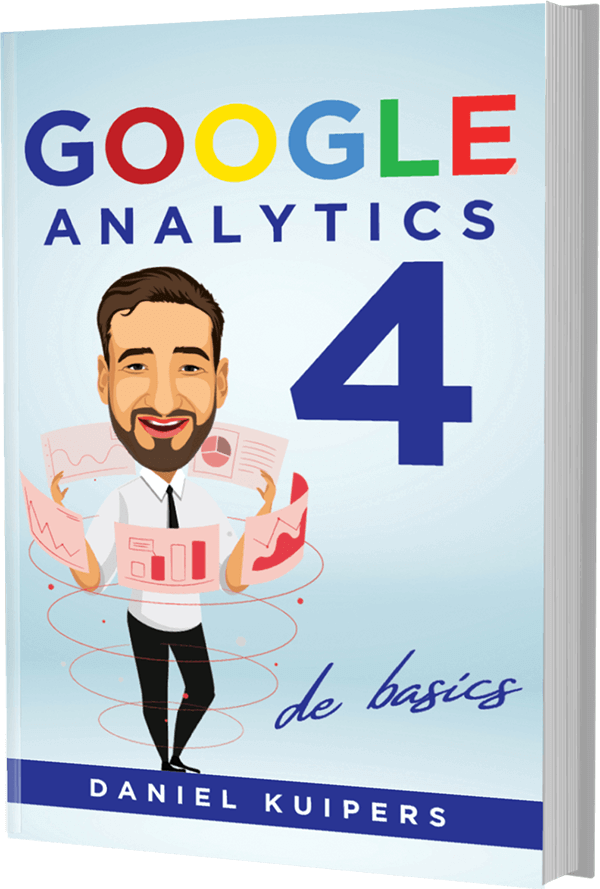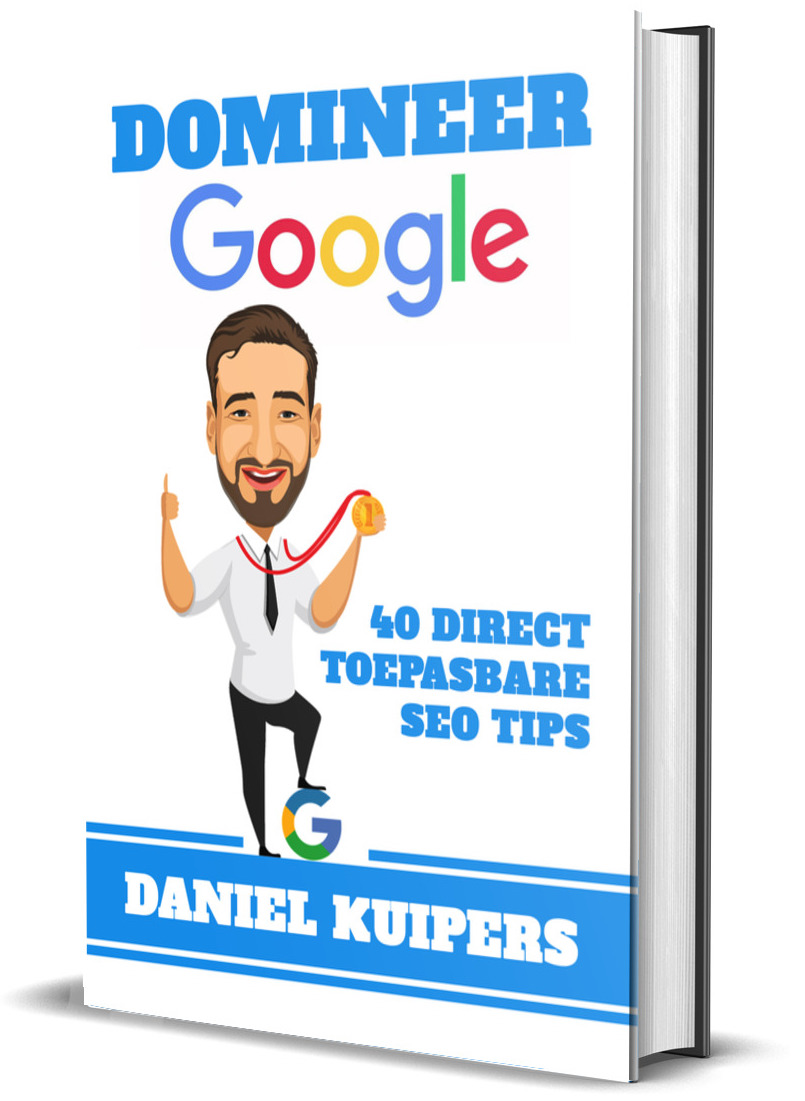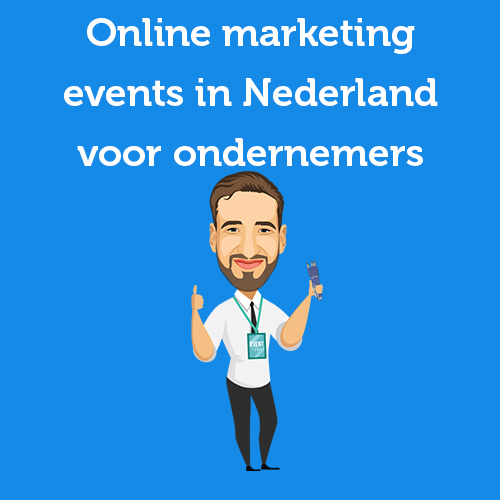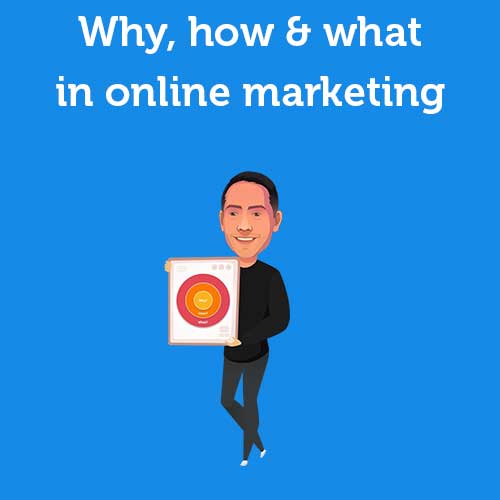Menu
Table of contents
Super helpful, but none of those blogs address what questions you should ask yourself before choosing a marketing agency.
While those questions are just as important to find an agency that really suits you and with which you can enter into a long-term and, above all, fruitful cooperation.
So first ask yourself the questions below and you will see that you will be much better able to decide whether an agency is going to be a good fit for you ... or whether it would be better to continue your search for a suitable partner (in terms of marketing, that is).
1. What is the story of your organization?
Before you step to a marketing agency, it is good to think about the story of your business. This is because it is very important to think about who you are, where you want to go and what the goal is.
Do you want a better world through your products? Is your focus on making as much money as possible? Or do you find that you are hitting a ceiling and need external help?
In fact, all of this has to fit the marketing agency you choose. For example, there are marketing agencies that specialize in nonprofit organizations, e-commerce or B2B lead generation, for example.
In addition, of course, the agency also wants their employee to match you and your business. And thinking about your story can contribute to that as well, as they may employ someone who also values the same values.
That increases the chances of a good fit!
Tip: Think carefully about your company's mission and vision. Use Simon Sinek's Golden Circle to figure out why you do what you do.
2. Do you have personas? If not, who is your ideal customer?
It is now clear who you are and what your goal is. Next, it is important to know who you want to reach. In other words, who your ideal client is.
The best way to answer that is to use buyer personas. A persona is nothing more than describing the face and identity of your ideal customer.
Consider:
- Name
- Age
- Income
- Training
- Interest
- Residence
- Hobbies
- Family composition
- Pains (pains your client faces)
- Gains (things that make your customer happy)
- Websites he/she visits
- What kind of car he/she drives
- And so on
You get the idea! All the information it takes to make it as concrete as possible who your ideal client is.
And that's important, because that's where all the channels and expressions you do online need to fit well. In everything you do, you have to ask yourself "What would Pete think of that?
3. What marketing channels have you used so far?
Now that your personas are concrete, the next step is to write down everything you have already done in terms of marketing. Start at the macro level first.... Consider, for example:
- SEO
- SEA
- Email marketing
- Social media advertising
- LinkedIn, Meta, TikTok?
Then also go into depth. What exactly did you do? Did you write copy based on keywords? Did you set up ads based on specific search terms? Or did you run retargeting on specific landing pages?
This does not have to be described in detail, but it is important to know what you did and what result it led to.
I want to talk about those results a little bit more, because was it initially measurable what the result of your efforts was? And if so, what exactly was it?
Were these a specific number of leads? And was that successful for you or not?
This is important because your marketing agency can build on it or determine where the opportunities lie.
4. How is your knowledge of online marketing?
If you answered question 2 correctly towards your marketing agency, then they can already partially fill in this question themselves. Based on your actions, your comments and your results, they can already estimate this pretty well.
Still, it's good to think about this. Because if you are good at writing texts yourself, you can, for example, take some of the work off your hands. And that saves money.
And when, for example, you're not at all good with Meta advertising, it might make sense that your ads didn't pay off. Then maybe it's not because of your targeting, but because of your targeting and content.
Since we always see the processes with our clients as a collaboration, it is good to indicate what each other's strengths and weaknesses are. After all, that's where you can complement each other.
5. How many hours do you or your team have available per week for online marketing?
This ties in well with the last sentence of question 4. Because in a collaboration, it's mostly about expectations. What can you do and when can you get this done?
To answer the latter, you need to know how many hours you or your team can spend per week or per month on online marketing. Do you have 1 hour a month to make calls? Or can you spend 2 hours a day marketing yourself?
This is crucial for your marketing agency to know. After all, when they want to create a promotion or campaign and they need your feedback, they want to know when to expect it.
After all, you don't want to sit around waiting for each other :-).
6. What are your goals?
We've had the high level stuff now and it's time to dive into the data and numbers. It's time to get concrete.
Because marketing is all about the data. The next question is about your goals. Because what exactly is it that you want to achieve?
For one person, 1 customer a month may be a lot and for someone else, 10 customers a day may be little. What are your goals that you would like to achieve?
And when do you want to reach them? Is that tomorrow? Or do you not want to meet your goals until next year? Based on those answers, you can once again determine your marketing techniques and channels.
7. What is your marketing budget?
Because you have determined your goals, you know where you want to go. Next, you need to figure out the amount of money you are willing to spend to achieve those goals.
In other words, the marketing budget. This is the total budget that's going to make sure you achieve your goals.
So this includes ads, man-hours you have to buy and any other outside help for, say, making a video.
Now you may be thinking, "How can I properly answer this question? We're going to help you with that in the following questions, because we always like to hear what your marketing budget is.
Because then we will soon know how you think about marketing, what the possibilities are within your company and whether it is all realistic.
8. What does a customer get you on average?
Now is the time to test your marketing budget. After all, is the amount you want to pay for it realistic? Is it perhaps far too little? Or way too much?
That's where these questions are going to help you. The first question is "What does a customer bring you on average? To answer that question, divide your total revenue by the total number of customers you have.
Suppose you have €100,000 in sales and 100 customers, each customer earns you an average of €1000. Of course, this is not a sacred number because you can serve different customers and have differences products.
But it is important to know. Why? We'll get to that in a moment.
9. What can a customer cost you? (CAC)
The CAC, also called customer acquisition cost, shows how much each customer cost to bring in. Suppose you yourself spent €20,000 on marketing to bring in the aforementioned 100 customers and €100,000.
You have to divide the €20,000 by 100 to calculate the CAC. In other words, the CAC is €200.
That means it costs €200 to bring in a customer. Now that you know that, my question is really very simple: does that fit within your revenue model?
If the answer is "Yes," then your initial focus should be on more customers. Because this fits within your business. My advice then would be to run more volume first, so that you can later bring your CAC back down to legs.
Suppose your answer is "no. In other words, that €200 is too much for bringing in a new customer. Then my next question is: how much should a customer cost you? Is that €100? Or is that maybe €20?
10. What is your customer's life time value (LTV)?
The questions asked so far have been deliberately asked in this order.
For question 8 I asked what a customer brings you on average (per year). But of course it could be that someone is your customer for 3 years on average and not 1 year. That's where the lifetime value (LTV) comes in. You then look not specifically at one year, but at the entire period that someone is a customer with you.
In fact, they may only spend €1000 the first year, but €5000 the second year and €10,000 the third year. And if your goal is (question 6) that in 5 years you want to be the biggest than the Netherlands, then you also have to think long term.
And then the LTV is very important, because based on that you can start making choices (including biij example what your marketing budget should be ).
Now that you know this, I want you to do the math yourself with the questions above. Is your marketing budget realistic? Are you going to reach your goals with your current numbers? Shouldn't there be some internal optimization before you start working with an outside party?
These are all things that you need to think about and that these questions are going to help you with.
11. What is your website's conversion rate?
I understand that the questions so far have been tough for you, but they really are incredibly important for your business. Now it's time to answer some lighthearted marketing questions.
After all, is your website fully measurable and are all your conversions linked? If not, you need to take care of that today. Should everything be measurable, I am very curious about the conversion rate.
Is it 1% or is it more like 5%? Depending on your product, price, niche and conversion opportunity, that can vary a lot. After all, an online shop has a different conversion rate on average than a B2B lead generation website.
The conversion rate is so important because it indicates how well your Web site is set up. In fact, if your website has a low conversion rate, it could mean that your website is not optimally set up.
But it can also mean that the traffic you brought in is irrelevant, but that's another story.
12. How many visitors does your website have per month?
On to light-hearted question number 2 and question 12 in total: how many visitors does your website have per month? Is that 100,00? Or are there 500?
Depending on your niche, that can be a lot or a little. I have a client who can run a business with 100 relevant visitors a week. But I also once worked for a client with 10,000 visitors a week and they barely kept anything going on a monthly basis.
A number of visitors says nothing by definition, but with all the previous answers, that number does complete the picture.
This article was written on December 16, 2020 and updated on September 17, 2023.











Written by: Daniel Kuipers
Daniel is the founder of Online Marketing Agency. He constantly scours the Internet for the latest gadgets and tactics and blogs about them in understandable language. Well, sometimes.